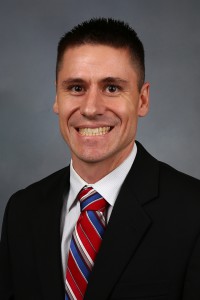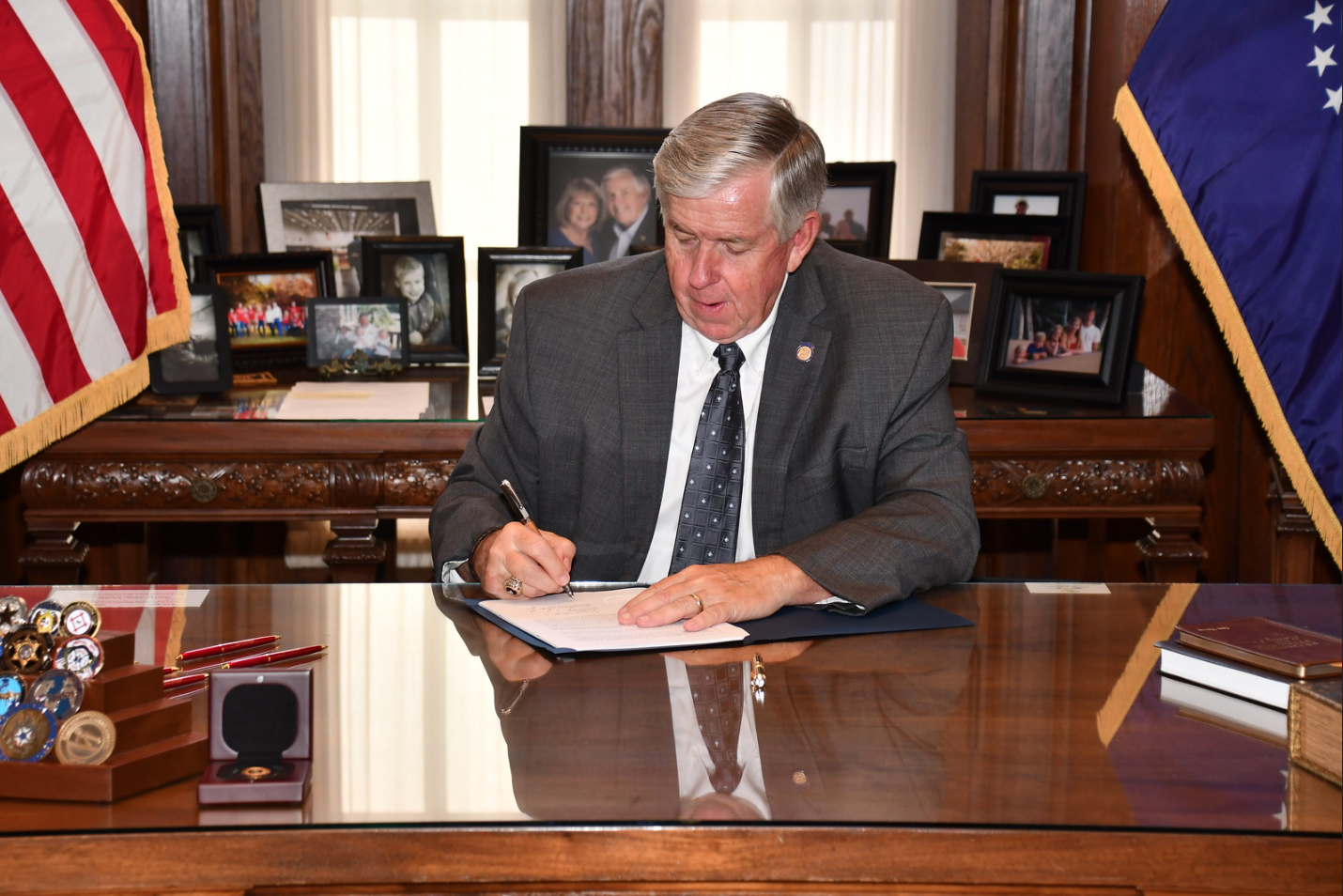JEFFERSON CITY, Mo. — A little more than a year after the Attorney General’s Office began investigating the backlog of untested rape kits in the state, Missouri is adding greater protections for victims and a process to streamline that testing.
Gov. Mike Parson signed SB 569 into law Monday morning, a bipartisan omnibus bill to help sexual assault survivors in Missouri.
Championed by state Sen. Andrew Koenig, the underlying bill created a process for streamlining the testing of rape kits and making it easier for victims to track the kits’ status. The bill was born following Attorney General Eric Schmitt’s audit last year that found more than 6,000 sexual assault kits in Missouri sat untested.

The bill mandated law enforcement agencies to retain evidentiary collection kits for 30 years that have not been adjudicated. And except for in the cases of minors, unreported kits should be retained for at least five years.
“My legislation puts an end to the grievous harm that has been inflicted on too many sexual assault victims and survivors in our state,” Koenig said. “Survivors will no longer have to suffer in silence. They will finally have the resources and support needed to find closure.”
“Senate Bill 569 demonstrates our state’s commitment to supporting victims of sexual assault by giving them the rights and protections they deserve,” he said. “I am very grateful for the governor’s support in helping sexual assault victims and survivors in our state.”
In the shortened legislative year — when most of the legislation that passed out of the General Assembly pertained to the budget or global health crisis — the bill grew to include the “Sexual Assault Survivors’ Bill of Rights,” which established certain protections for victims, including the right to consult with a counselor or support person during the tedious medical or legal process that comes with reporting such crimes. From state Sen. David Sater, the measure also protects a victim from having to pay for a rape kit and ensures communications between a counselor and survivor are privileged.
State Sen. Jill Schupp also attached an amendment to increase access to rape kits in the first place — an effort she’s led for more than a year. The measure created a statewide telehealth network to mentor, train, and provide assistance to medical providers who are conducting forensic examinations, meaning hospitals wouldn’t necessarily have to be staffed with full-time Sexual Assault Nurse Examiners (SANE) around the clock.
A telehealth system alleviates a possible additional burden placed on victims who seek treatment after an assault. Now, if a hospital cannot provide a rape kit, a victim might either forgo the examination or have to travel long distances, an experience that could be retraumatizing or contaminate evidence, Schupp has said.
“My Justice for Survivors Act included in SB 569 will help survivors of sexual assault across our state as they bravely seek treatment and evidence collection to hold perpetrators to account,” Schupp told The Missouri Times. “I am grateful for the broad bipartisan support that helped to get this legislation passed.”
Jennifer Carter Dochler, public policy director for the Missouri Coalition Against Domestic and Sexual Violence (MCADSV) said: “On behalf of the 53 rape crisis centers and the victims of sexual assault they serve each year, MCADSV is very thankful for the strong bipartisan support of many legislators on SB 569. This law will change lives as survivors will have greater access to expert sexual assault nurses, established rights during a sexual assault forensic exam or interview with law enforcement or a prosecuting attorney, and a process for unreported sexual assault kits.”
The bill has earned national praise as well.
“I worked very hard to pass the Debbie Smith Act and make sure Congress funds efforts to eliminate the unconscionable rape kit backlog. It is great to see Gov. Parson further this mission and sign into law similar legislation on the state level to provide vital protections for sexual assault victims,” U.S. Congresswoman Ann Wagner said. “Victims of sexual assault bravely come forward to report these crimes, and it is our duty to help them find justice and hold perpetrators accountable. This is an important step in our fight to ensure all rape kits are tested and survivors get the support they need.”
Amanda Nguyen, founder and CEO of Rise, a group that advocates for a Sexual Assault Survivors’ Bill of Rights at the federal and local levels, said: “Today is a historic day for Missouri, as 1.8 million survivors are now empowered with basic civil rights that help them get one step closer to justice.”
“Survivors both in Missouri, and across the country, deserve at a minimum the rights guaranteed by the federal law, and we applaud the Missouri House of Representatives, Missouri Senate, Gov. Mike Parson, and our local Risers for getting across the finish line,” she said.
Schmitt’s office has made tackling the untested rape kits a priority during his tenure in office. In all, 6,987 kits were identified under his office’s audit, which included 6,157 untested kits and an additional 830 that might need to be retested. Of those kits, police reports were located for 75.4 percent; reports were not filed or accessible for 1,719 kits.
Partnering with local law enforcement offices across the country, the Attorney General’s Office has sent off 1,056 kits to be tested since the audit.
“It’s important to remember these kits are not just numbers. They are not footnotes to the reporting of a crime. They represent real human beings, who have suffered, confronted their fears, reported the assault, and submitted a kit,” Schmitt has said.
This story has been updated.

Kaitlyn Schallhorn was the editor in chief of The Missouri Times from 2020-2022. She joined the newspaper in early 2019 after working as a reporter for Fox News in New York City.
Throughout her career, Kaitlyn has covered political campaigns across the U.S., including the 2016 presidential election, and humanitarian aid efforts in Africa and the Middle East.
She is a native of Missouri who studied journalism at Winthrop University in South Carolina. She is also an alumna of the National Journalism Center in Washington, D.C.
Contact Kaitlyn at kaitlyn@themissouritimes.com.
























